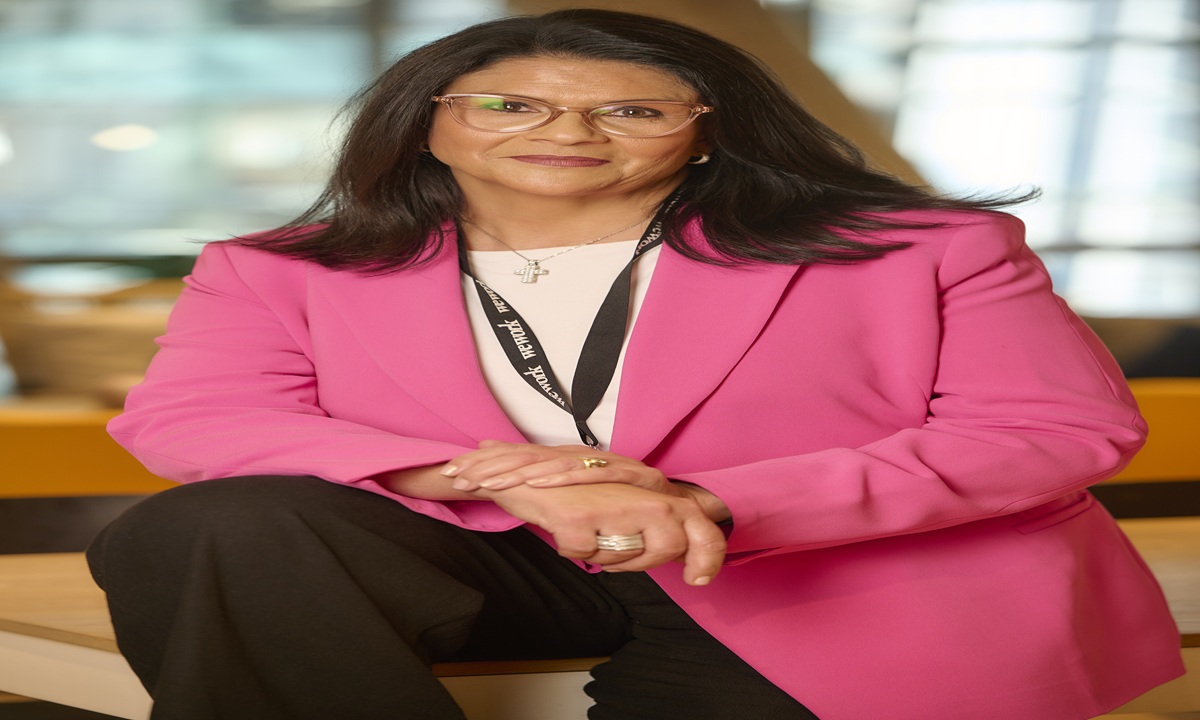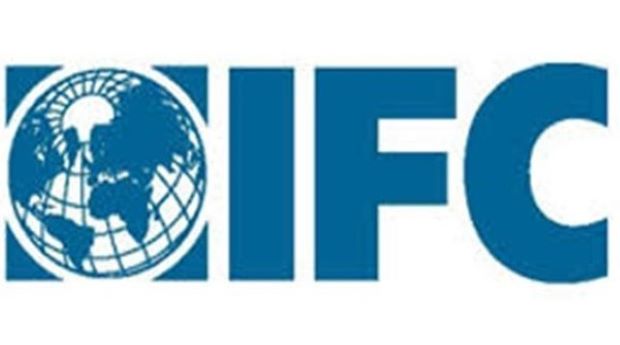Broadcasting
COVID-19: StarTimes Introduces Convenient Recharge System for Subscribers

StarTimes Nigeria, leading digital Pay-TV company, has introduced a convenient way of recharging through, StarTimes ON, its mobile streaming platforms.

This is to ensure that its subscribers pay their subscription with ease.
This, according to the company, is due to the prevailing circumstances that have forced many across the African continent to adjust to new ways of living and working while many have been required to spend more time at home with their loved ones.
Speaking on this development, the company noted that “it became necessary to provide a convenient method of recharging to enable subscribers renew their subscription without handling of cash at this critical period to avoid contracting or transmitting the virus.
According to the company “We want to ensure that our subscribers get the best of services at all times without facing subscription challenges. Customers can recharge, renew, change bouquet, or check expiry date by using the StarTimes mobile app.
Stating the process of how the apps work, the company noted that “users can download the StarTimes ON App on their mobile phones and link their smart card to recharge or upgrade TV bouquet directly with no contact to the possible infection outside.
The company further explained that “The process of binding card on StarTimes ON is very simple to operate by Firstly; downloading the StarTimes ON through Google Play or the App Store, Secondly; Click “My StarTimes decoder service” Thirdly; tap the link decoder icon, fourthly; register your smart card ID and the decoder serial number and lastly, click the link and all done!”
Broadcasting
Humans + Machines: Building the workforce of the future

By Ursula Fear, Senior Talent Programme Manager | Salesforce
Is AI coming for your job, or is it already working beside you? As its use becomes more routine, artificial intelligence is looking less like a threat and more like a teammate: answering queries, making decisions, chasing leads, processing invoices, and drafting content around the clock.

Ursula Fear, Senior Talent Program Manager, Salesforce
This new class of digital labour is changing how teams function, how targets are met, and how people spend their time at work. From now on, almost every job, team, and company will involve AI agents – systems that can analyse vast datasets, apply human-like reasoning, and act independently. Their presence is set to influence workflows, increase productivity, support innovation, and redefine roles across the organisation.
Rather than replacing people, AI is tilting the workload. Salesforce research shows that 23% of HR teams plan to redeploy employees into roles that make better use of their uniquely human strengths. At the same time, agentic AI adoption is projected to surge by 327% over the next two years (from roughly 15% adoption today to about 64% by 2027).
This shift is tied to anticipated productivity gains of 30% per employee and labour cost reductions of 19%, equating to about $11,000 in savings per employee annually, based on Organisation for Economic Co-operation and Development (OECD) wage averages. Rather than replacing people, organisations are preparing to reskill and redeploy workers, enabling humans to focus on higher-value roles that emphasise creativity, strategy, and interpersonal skills.
A recent Gartner poll further found that 95% of customer service teams intend to retain human agents to help define and guide the role of AI, reinforcing the value of a “digital first, not digital only” approach. Gartner further says that by 2027, half of the organisations that planned to significantly reduce their customer service workforce will abandon those plans, highlighting the limits of going fully “agentless”.
For African countries, the rise of digital labour presents an opportunity to build modern, inclusive workforces without being bound by outdated development models. But realising this potential depends on sustained investment in skills training, digital infrastructure, and equitable access to AI tools.
Train for tomorrow
Africa has the world’s youngest population. It’s bursting with entrepreneurial energy. But many young people still don’t have access to the tools and skills that will define the next era of work. If the continent wants to lead in the digital labour revolution, it should act now by investing in digital infrastructure, prioritising skills development, and forging partnerships that make future-focused training widely accessible.
Yes, the skills gap is real and broadband internet is still a luxury in many communities. But on the upside, AI training doesn’t require a university degree. Much of it is free, online, and accessible to anyone with a smartphone and a curious mind.
That opens the door to governments, educators, businesses, and civil society to step up to update school curricula, expand digital infrastructure, and support public-private training partnerships. All of this matters: not just for economic growth, but for social inclusion, too.
If these foundations are put in place, African countries could not only meet the needs of their growing population but also leapfrog outdated development models.
From entry-level to in-demand
When AI begins to handle the simpler tasks, it’s easy to worry about what’s left for those starting out. Entry-level jobs aren’t disappearing though. Instead of doing routine work, newcomers will now need to build skills in oversight, collaboration, and using AI tools effectively from day one. The ladder still exists; it just starts in a different place.
This will require a different kind of training – not just technical know-how, but in soft skills like empathy, adaptability, ethical judgement, and communication, which are all human traits that help teams thrive.
AI’s presence in the workplace may be concerning, with reports of job cuts due to its adoption (here, here, here, and here), but all is not as it seems.
Research suggests a more balanced perspective: One of the most comprehensive studies, from the National Bureau of Economic Research, tracked 25,000 workers across 7,000 Danish firms using AI chatbots. It found no significant changes to jobs, wages, or working hours. Productivity rose by around 3%, without leading to layoffs.
The St. Louis Fed found something similar. Based on large-scale surveys in the US, researchers reported one in four workers now use generative AI weekly, saving on average just over two hours a week. Spread across the entire labour market, that translated into a 1.1% productivity gain. Crucially, there was no sign this efficiency came at the cost of jobs.
Adding to this, a 2024 study by Mäkelä and Stephany analysed over 12 million US job listings and revealed that demand is surging for “AI-complementary” skills such as resilience, teamwork, digital literacy, and analytical thinking. These are the very human capabilities that help people work effectively with AI. The study found AI-focused roles are nearly twice as likely to list these skills, and they command wage premiums of 5–10%. Even more telling: the positive impact of these complementary skills outweighs the substitution effects of AI by up to 70%.
These findings all suggest that AI isn’t replacing workers; it’s helping them work smarter and more efficiently. To thrive in this blended future, we need to prepare today, by building the right skills, expanding access, and embracing AI not as a threat, but as a partner in progress.
Because the future of work won’t be entirely human, nor entirely automated – it will be a blend of both.
Broadcasting
Mastercard Highlights Africa’s $16.5Bn AI Potential and Path to Digital Empowerment

Mastercard has today released its latest whitepaper, Harnessing the transformative power of AI in Africa, a pan-African study of the continent’s readiness, opportunity and roadmap for responsible artificial intelligence (AI) adoption.

Mark Elliott, Division President, Africa at Mastercard (L) and Ambassador Philip Thigo, Special Envoy on Technology in Kenya (R), at the official launch of the Mastercard whitepaper which provides insights on harnessing the power of AI in driving digital transformation
The whitepaper provides detailed insights into how AI—if deployed responsibly and inclusively—can unlock transformative outcomes across the continent’s major industries, including agriculture, healthcare, education, energy and finance.
With Africa’s AI market projected to grow from USD 4.5 billion in 2025 to USD 16.5 billion by 2030 according to a recent report from Statista, the paper presents a clear case for multi-stakeholder collaboration and investment. It highlights how Africa’s unique demographics, mobile-first infrastructure and entrepreneurial spirit position it as an active architect of the future.
Mark Elliott, division president, Africa at Mastercard, commented: “Africa’s engagement with AI is already reshaping lives — not just in labs, but in farms, clinics and classrooms. To unlock its full potential, we need investment in infrastructure, data, talent, and policy. At Mastercard, we believe responsible, locally rooted AI can drive inclusive growth and connect more people to opportunity.”
The whitepaper outlines the potential positive impact of AI on digital infrastructure, policy and governance, research and development, local language processing and investment into Africa.
It also explores how AI can accelerate job creation, with up to 230 million digital jobs projected by 2030 and increase access to formal finance through AI-enabled credit scoring and fraud prevention.
Greg Ulrich, chief AI and data officer, Mastercard, said: “AI is only as powerful as the trust behind it. At Mastercard, we’re committed to building AI that’s responsible, inclusive, and built to bring value to our customers, partners and employees. This isn’t just innovation—it’s innovation with integrity.”
Regional highlights covered in the whitepaper include:
South Africa: South Africa attracted USD 610 million in AI-focused venture capital in 2023, with total AI investment expected to reach USD 3.7 billion by 2030. With the highest data and infrastructure readiness in Africa, the country is solidifying its role as a continental leader in AI research and application. It is home to the Artificial Intelligence Institute of South Africa which serves as a gateway for students and professionals to access world-class education, research and industry news. National plans aim to develop up to 300 AI start-ups and train 5,000 AI professionals by 2030, creating the foundation for a vibrant, homegrown AI ecosystem.
Kenya: An emerging leader in AI innovation, Kenya has leveraged its “Silicon Savannah” status to securely deploy AI across sectors. Platforms like Tala use mobile data for credit scoring, while Jacaranda Health’s UlizaLlama, an AI-powered chatbot, provides maternal health support in five local languages. The newly launched National AI Strategy (2025–2030) outlines the government’s commitment to positioning Kenya as a regional leader in AI research and development, innovation and commercialization for socioeconomic development.
Nigeria: Nigeria ranks second in the number of AI startups in Africa and secured USD 218 million in VC investment in 2023. As one of Africa’s most dynamic AI ecosystems, Nigeria is using AI to personalize learning (Rising Academies), deliver microfinance via Kudi.ai, and strengthen governance with AI tools that monitor public fund allocation. With a $1.4 billion projected AI market size by 2025, the government’s proactive approach, combined with growing private-sector innovation, suggests promising growth in AI applications.
Morocco: An emerging AI hub in North Africa, Morocco is advancing AI adoption across healthcare, energy, agriculture, and finance. Institutions such as Mohammed VI Polytechnic University and DeepEcho are driving local innovation, while the MoroccoAI Annual Conference is shaping national dialogue on the future of AI. Under its Digital 2030 strategy, Morocco aims to attract USD 1.1 billion in investment and create 240,000 digital jobs by 2030. Despite this progress, the whitepaper warns that data fragmentation, language exclusion and regulatory inconsistency could deepen the digital divide.
Harnessing the potential of AI in Africa will be instrumental in accelerating financial inclusion and driving the continent’s digital and economic growth. Strategic collaborations between governments, fintechs, and global partners will be key to unlocking AI’s full impact.
Mastercard’s whitepaper draws on insights from leading African technologists, policymakers, academics and entrepreneurs, including interviews with UNESCO, the African Center for Economic Transformation, and fintech leaders across the region.
Broadcasting
IFC Strengthens Support for Africa’s Creative Economy with Investment in Filmmakers Market

To enhance access to production services in Africa’s film and entertainment industry, IFC announced an investment into Filmmakers Mart (FMM), Africa’s first integrated digital production platform.

FMM connects creatives to essential production services including location scouting, logistics coordination, catering, and permit acquisition through a centralized system.
It replaces fragmented service sourcing with a cost-effective, time-saving model, using AI-powered tools and automated workflows to enhance service quality and ensure access to vetted providers and filming locations.
IFC’s investment will support FMM to expand from its current markets in Nigeria, Kenya, Ghana, Morocco and South Africa into new markets. It will also fund the development of new platform features, including subscription models, post-production tools, and training programs designed to serve a growing community of creators.
The partnership will help strengthen Africa’s creative economy, helping creative professionals overcome the access to market barriers faced by so many on the continent.
This marks IFC’s first investment in Nigeria’s audiovisual sector and its first co-investment with Sony Innovation Fund Africa.
“We’re building the operating system for the creative industries in emerging markets; an ecosystem of interconnected tools and services designed to eliminate friction, unlock collaboration, and scale access to opportunities for creatives and entertainment businesses,” said Eric Kafui Okyerefo, CEO, Filmmakers Mart.
“Having IFC and Sony Ventures as strategic partners strongly validates this vision. Their support enables us to deepen our impact, expand globally, and continue solving the structural challenges faced by storytellers and producers in these markets.”
Sony Innovation Fund’s investment will provide FMM with access to its global network and industry expertise in content distribution, helping the platform strengthen its market position.
“At Sony Innovation Fund, we are committed to supporting technologies and platforms that empower creators and drive its growth,” said Antonio Avitabile, Managing Director, Sony Ventures, EMEA. “Filmmakers Mart is addressing real infrastructure gaps in Africa’s production ecosystem with a smart, scalable solution. We’re proud to partner with IFC on this investment, and excited to help FMM unlock new opportunities for the region’s vibrant creative community.”
“Africa’s film and entertainment sector is brimming with talent, but talent alone is not enough. It needs the right tools, platforms, and investment to thrive,” said Dahlia Khalifa, IFC Regional Director for Central Africa and Anglophone West Africa. “Our partnership with Sony to support Filmmakers Mart reflects IFC’s commitment to harnessing technology and innovation to support Africa’s creative industries and help scale opportunities for the next generation of storytellers across the continent.”
This partnership, which is helping more women, young people, and underrepresented groups earn incomes and grow sustainable businesses within the digital creative economy, bolsters IFC’s broader aims to create jobs, foster inclusion, and support digital innovation across Africa.

 E-Business2 days ago
E-Business2 days agoReport Reveals Over Half of Security Experts Overwhelmed Managing Cybersecurity Tools from Multiple Vendors

 Telecom2 days ago
Telecom2 days agoMTN & Ultima Studios Kick Off Hunt for Nigeria’s Next Afrobeats Icon

 Broadcasting2 days ago
Broadcasting2 days agoIFC Strengthens Support for Africa’s Creative Economy with Investment in Filmmakers Market

 General News2 days ago
General News2 days agoNBA Africa Urges Entrepreneurs to Apply for Funding

 Telecom2 days ago
Telecom2 days agoWhatsApp Cracks Down on Criminal Scammers & Introduces New Safety Tools

 Telecom2 days ago
Telecom2 days agoKenyan Court Blocks Paradigm Initiative’s Bid to Join Digital Freedom Lawsuit Against X Corp

 News2 days ago
News2 days agoPalmPay Partners FG to Drive Data Protection Awareness

 Broadcasting1 day ago
Broadcasting1 day agoMastercard Highlights Africa’s $16.5Bn AI Potential and Path to Digital Empowerment



























